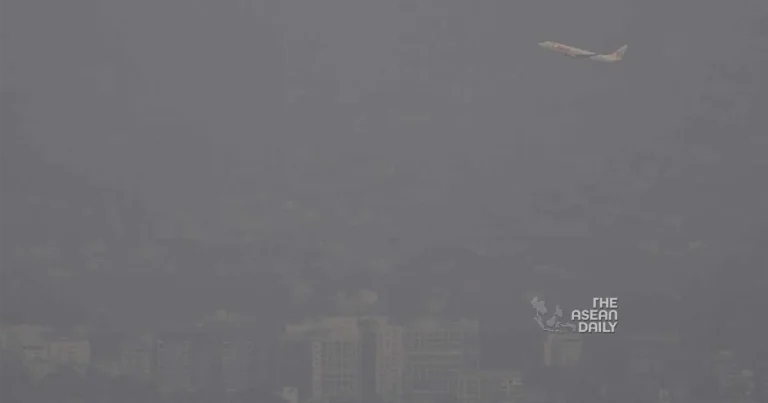21-3-202 (BANGKOK) A severe air pollution emergency is unfolding across the northern Thai provinces of Chiang Mai, Chiang Rai, and Mae Hong Son as dangerously high levels of PM2.5 particulates engulf the mountainous region. These areas, which have previously ranked among the most polluted globally, now find themselves at the epicentre of an environmental crisis straining public health resources.
As smoke from forest fires blankets the provinces in thick hazardous smog, locals have been forced to invest in air purifiers and face masks for basic protection. While some residents can afford private healthcare, the majority lack such privileges, fuelling calls for the government to designate the afflicted provinces as disaster zones to unlock emergency funding and support.
However, the administration of Prime Minister Srettha Thavisin remains reluctant to take this step, wary of potential long-term reputational damage that could imperil the tourism industry – a vital economic pillar. “We must safeguard the tourism sector,” Srettha asserted, revealing the decision against disaster designations followed extensive consultations with relevant agencies.
The delayed release of the fiscal budget until November 2023 has intensified this polarising debate. Opposition parties argue that recognising Chiang Mai as a disaster area would grant the province sorely needed funds to combat the wildfires driving the pollution. Yet the government and some local stakeholders voice concerns over potential repercussions, including insurance firms denying claims within designated disaster zones and tourists being dissuaded from visiting the Kingdom.
Punlop Saejew, President of the Chiang Mai Tourism Council, echoed these apprehensions, warning that a disaster declaration could dampen the tourism influx. Between 1st and 16th March alone, Chiang Mai welcomed over 52,000 international arrivals via direct flights, generating at least 1 billion baht ($28 million) for the province’s tourism supply chains. “Without tourists, operators risk accruing debts, triggering a surge in non-performing loans,” Punlop cautioned.
Instead, he advocated for a “Clean Air Act” enforced through stringent regulations, severe penalties for offenders and incentives for compliance. Punlop proposed government subsidies for farmers eschewing slash-and-burn cultivation, alongside a fundraising scheme offering tax breaks to investors contributing towards an anti-pollution fund.
The crisis has also captured attention from the Thai Chamber of Commerce’s Kamonsan Srivirach (Phayao) and Allianz Ayudhya Assurance Chief Thomas Wilson. While acknowledging tourism impacts, Kamonsan believes a Chiang Mai disaster designation could garner critical healthcare and mitigation funding. Wilson cited the public health toll, advocating a multi-pronged approach including forest fire crackdowns, remote work promotion and reduced energy consumption.
For the Kingdom’s private insurers, the effects have been less pronounced than the public sector due to lower policy penetration in northern provinces versus higher-income Bangkok. Nonetheless, Wilson underscored insurance’s role in jointly addressing Thailand’s worsening pollution plaguing not just the smog-choked northern hinterlands, but the bustling, traffic-clogged capital.




